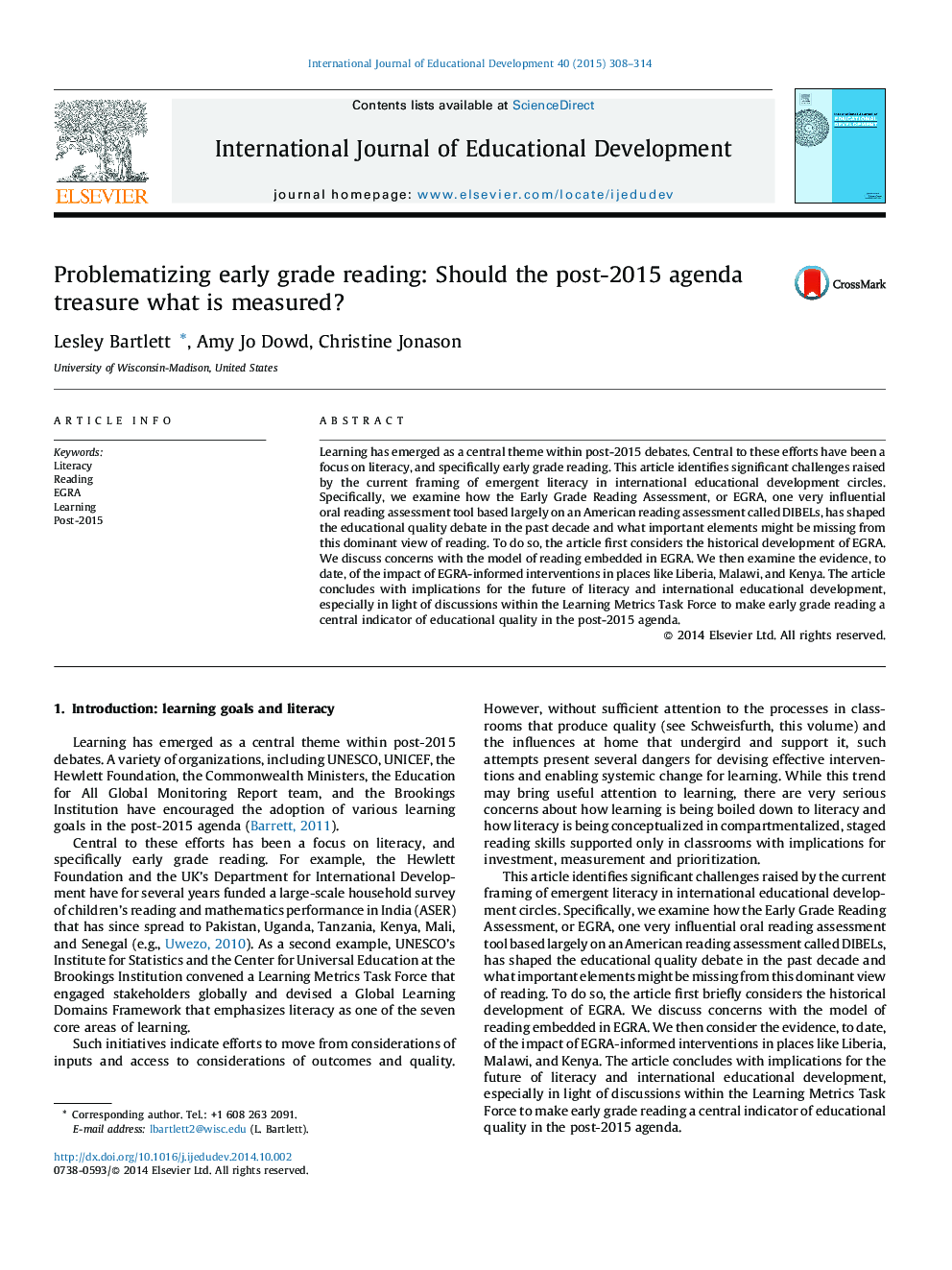| Article ID | Journal | Published Year | Pages | File Type |
|---|---|---|---|---|
| 6841336 | International Journal of Educational Development | 2015 | 7 Pages |
Abstract
Learning has emerged as a central theme within post-2015 debates. Central to these efforts have been a focus on literacy, and specifically early grade reading. This article identifies significant challenges raised by the current framing of emergent literacy in international educational development circles. Specifically, we examine how the Early Grade Reading Assessment, or EGRA, one very influential oral reading assessment tool based largely on an American reading assessment called DIBELs, has shaped the educational quality debate in the past decade and what important elements might be missing from this dominant view of reading. To do so, the article first considers the historical development of EGRA. We discuss concerns with the model of reading embedded in EGRA. We then examine the evidence, to date, of the impact of EGRA-informed interventions in places like Liberia, Malawi, and Kenya. The article concludes with implications for the future of literacy and international educational development, especially in light of discussions within the Learning Metrics Task Force to make early grade reading a central indicator of educational quality in the post-2015 agenda.
Related Topics
Social Sciences and Humanities
Social Sciences
Development
Authors
Lesley Bartlett, Amy Jo Dowd, Christine Jonason,
